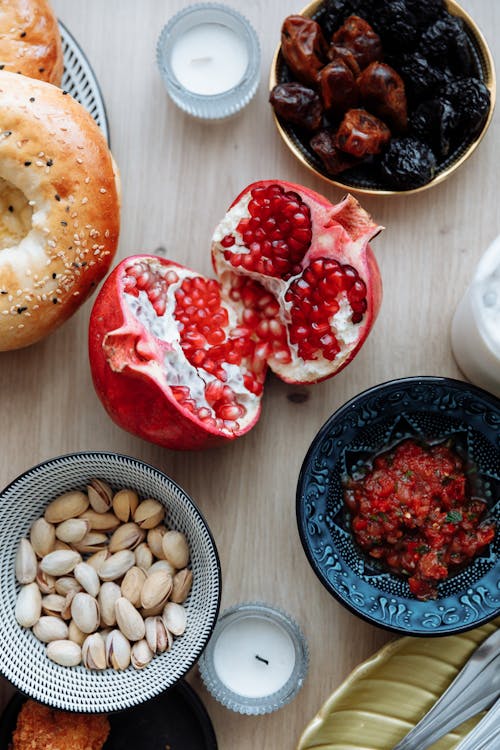Ramadan - Top 10 Nutritional and Health Tips
Published
Read time

Optimise your diet and lifestyle habits
Fasting during Ramadan offers numerous physical and psychological benefits. To maximise these benefits, it's important to optimise your diet and lifestyle habits.
With only two meals a day instead of three, it's crucial to nourish your body with the most nutrient-dense foods.
Here are ten tips to help you do so:
1. Break your fast with water, not sweetened or sugary drinks. Limit consumption of dates to around one to three.
2. Include fibre-rich, nutrient-dense foods as the foundation of your meal. These include:
- Non-starchy vegetables (such as broccoli, cucumbers, peppers, cabbage, asparagus, tomatoes, and a variety of dark leafy greens). Consider starting your meal with soups or salads.
- Whole grains (such as brown rice, wholemeal rye bread, barley, or quinoa).
- Legumes (such as lentils, chickpeas, kidney beans, black beans, tofu, tempeh, edamame beans, and peas).
3. Avoid foods high in saturated fat, including red and processed meats, and full-fat dairy. If consuming animal products, limit them to no more than a quarter of your plate, and choose skinless chicken or fish. For dairy, opt for low-fat alternatives instead of full-fat products.
4. Include one to two portions of healthy fats, such as nuts and seeds, each day. (Note: one portion equals one ounce (a quarter cup) of nuts or seeds, or two tablespoons of nut or seed butter.)
5. Avoid cooking with butter, ghee, cream, and frying foods. When using oils, opt for minimal amounts of non-tropical vegetable oils, such as sunflower, rapeseed, or olive oil.
6. Choose a variety of fruits as your dessert option for most days.
7. Avoid or eliminate caffeine and fizzy drinks during the fasting month, as they can interfere with sleep quality.
8. Rehydrating during non-fasting hours is crucial to prevent dehydration for the next day's fast. Choose to consume water or non-caffeinated herbal teas.
9. If you smoke, Ramadan is the perfect time to quit, as the most effective way to stop is by quitting abruptly.
10. Incorporate 20-30 minutes of walking daily. You can do this in the evening, close to breaking your fast, or after breaking your fast.
Note: Individuals with diabetes, chronic medical conditions, or those who are pregnant or breastfeeding should consult their healthcare professional for guidance on managing their fast, exercise routine, and whether any medication adjustments are needed.
Disclaimer:
The content in this article is for general informational purpose and is not meant to replace or substitute for professional medical advice, diagnosis or treatment. Always consult a qualified healthcare professional with any questions or concerns about your health